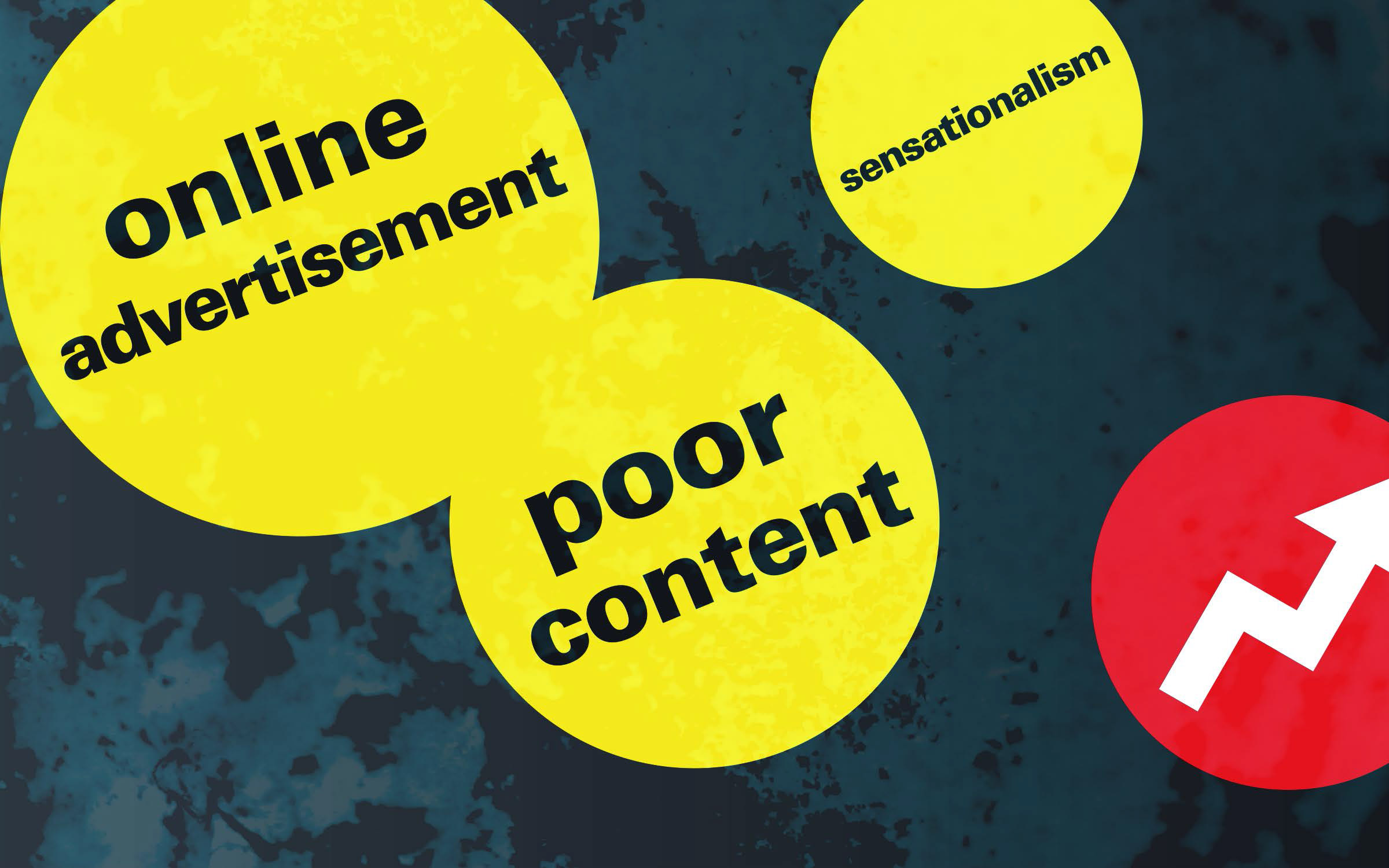Number 4 will absolutely shock you!
Oh, BuzzFeed. Where do I start with you? Sure, your gifs are cute, and your quizzes are good for a couple of minutes of mindless fun. Our relationship has been one of pleasant mutual indifference. But there are some things that are so delusional—so flat-out wrong—that they go beyond comprehension.
BuzzFeed released an article on its own site, written by a member of its own staff, titled “Why BuzzFeed Doesn’t Do Clickbait.” And the Internet collectively scoffed.
In summary, the writer argues that clickbait stopped working way back in 2009. He also defines clickbait as a misleading or downright untruthful headline: one example was “Paris Hilton—topless”, which would have Paris Hilton, fully dressed, in a convertible. After reading through the piece, it was clear that they needed a brush-up on what exactly clickbait is in the modern age of the internet.
Unfortunately, there’s only one way Buzzfeed knows how to communicate: in poorly compiled lists. So, with that in mind, let’s dive in: 6 Reasons Why BuzzFeed is Bad For The Internet, and For You.
1. That definition of clickbait is wrong.
What BuzzFeed is referring to is more of a bait-and-switch: you promise one thing, and deliver another. You could even call it a clickbait-and-switch. What clickbait is, specifically, is much broader and much simpler: it’s literally just baiting for clicks. You dangle out something tantalizing in order to get the click, and hence, the ad revenue.
2. Internet headlines have become clickbait.
What is a headline? Yes, it’s supposed to be attention-grabbing. But it’s also supposed to inform the reader about the content of the piece. It’s like a brief, one-sentence summary. There’s a reason why “Country A declares war on Country B” is a headline, and “You won’t believe what Country A did now” is not. The latter is clickbait. It doesn’t inform. In fact, it withholds information in exchange for the click.
3. BuzzFeed does clickbait.
Let’s take a look at BuzzFeed’s headlines. Even leaving out the countdown lists—“17 Facts You Won’t Believe Are Real”, as a real example—the clickbait is everywhere. What does the headline “Israelis And Palestinians Take Matters Into Their Own Hands” actually tell us about the Israeli-Palestinian conflict? Nothing. “This Is What Food Banks Actually Need” doesn’t tell us what food banks need, or whether or not they even speak to a food bank at all. “Whatever Happened To The White House Police Militarization Review?” doesn’t actually tell us what happened. To get the answers, you have to click.
4. Pretend to be shocked.
In all seriousness, BuzzFeed often promises that you will be “in tears,” “in stitches,” or you “won’t believe” one of the items of their list. It’s a promise of a strong emotional reaction, and it gets you to click.
5. BuzzFeed wants you to share.
BuzzFeed claims its goal isn’t to get clicks: it’s to get shares. If you think about it, every time you share an article, you’re getting BuzzFeed at least a couple of more clicks—and a little more revenue. Their headlines have been designed for shareability: the same way the headline nagged at your curiosity, it will for your friends. By making the articles silly and accessible (who doesn’t love gifs from Friends?) instead of hard-hitting and complex, you can read it through and share it quickly, and there’s a higher chance that the people you share it to will like it, too.
6. It’s started a trend. And we can’t stop it.
By sharing these articles, you’re showing that the system works. That withholding information is not only a viable business model, it’s a successful one. It’s spawned sites such as Upworthy, and The Onion’s satirical site ClickHole. The webcomic xkcd asked what would have happened in famous 20th century events had been rewritten for more clicks: could you imagine if the fall of the Soviet Union was watered down to “You Won’t Believe What They Did To The Berlin Wall”?
Sites like BuzzFeed boil down real human stories, real history and real conflict into clickbait headlines and gifs. And you, the internet, and reality deserve better.




